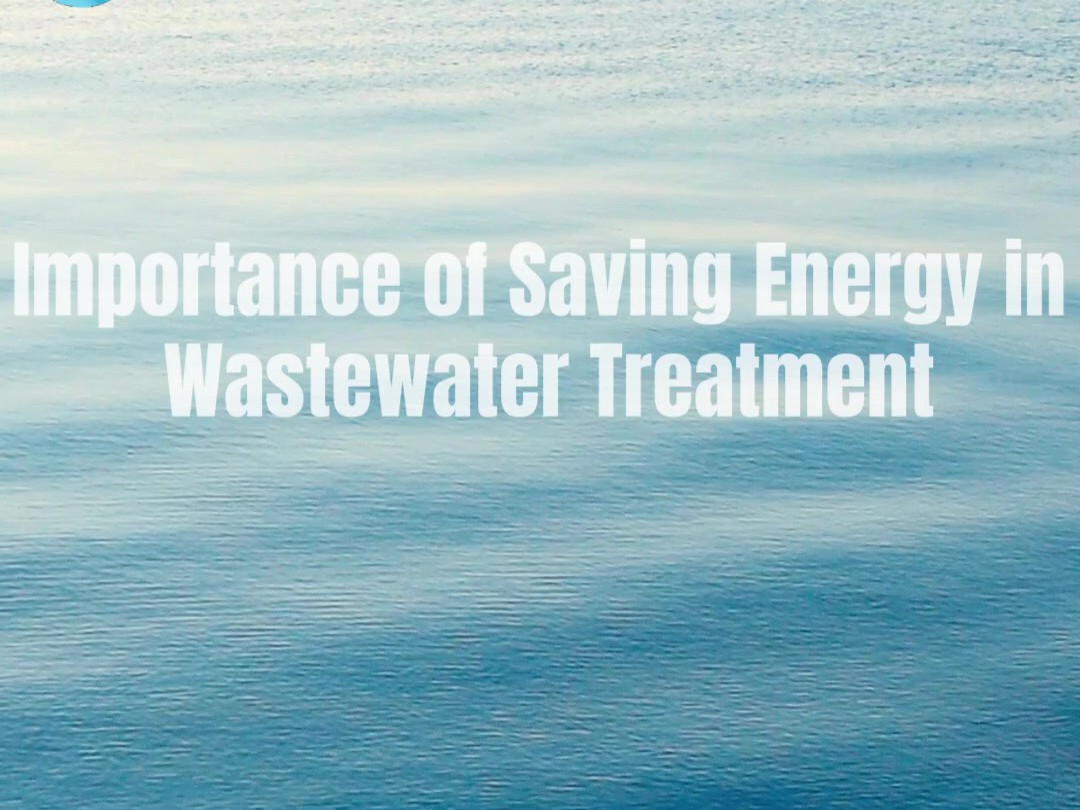Wastewater treatment is the process of removing contaminants from wastewater to make it safe for discharge into the environment or for reuse. It plays a crucial role in maintaining public health, protecting aquatic ecosystems, and conserving water resources. However, wastewater treatment itself requires a significant amount of energy to operate various treatment processes, such as pumping, aeration, and filtration. Here’s an overview of wastewater treatment and the importance of saving energy in the process:
Wastewater Treatment Process: Wastewater treatment typically involves several stages:
- Preliminary Treatment: This involves the removal of large objects, such as sticks, rocks, and plastics, to prevent damage to equipment downstream.
- Primary Treatment: In this stage, solid particles are settled out from the wastewater through sedimentation. This results in the formation of primary sludge.
- Secondary Treatment: This is the biological treatment phase, where microorganisms break down organic matter in the wastewater. Aeration is commonly used to provide oxygen to these microorganisms, facilitating the degradation of pollutants.
- Tertiary Treatment: This phase focuses on further polishing the treated water to remove any remaining contaminants, such as nutrients (nitrogen and phosphorus), fine particles, and dissolved solids.
- Disinfection: Finally, the treated water is disinfected to eliminate harmful pathogens before it is either released into the environment or reused.
Importance of Saving Energy in Wastewater Treatment:
- Environmental Impact: Wastewater treatment facilities are among the largest energy consumers in many municipalities. The energy used for processes like aeration, pumping, and treatment contributes to greenhouse gas emissions and air pollution. Reducing energy consumption helps mitigate these environmental impacts.
- Cost Savings: Energy costs make up a significant portion of a wastewater treatment plant’s operational expenses. By implementing energy-saving measures, such as optimizing processes, upgrading equipment, and adopting energy-efficient technologies, facilities can reduce operational costs over time.
- Sustainability: As global energy resources become scarcer, it’s important to adopt sustainable practices in all sectors, including wastewater treatment. By saving energy, we can help ensure the long-term viability of wastewater treatment operations.
- Climate Change Mitigation: The energy used in wastewater treatment is often derived from fossil fuels, which contribute to climate change. By saving energy in wastewater treatment, we can indirectly reduce carbon emissions and contribute to global efforts to combat climate change.
- Resource Conservation: Energy is a valuable resource. By saving energy in wastewater treatment, we can allocate more resources to other important areas, such as water conservation, infrastructure improvement, and technological innovation.
Energy-Saving Strategies:
- Process Optimization: Efficiently managing treatment processes can minimize energy consumption. This includes adjusting aeration rates, optimizing pump operations, and using advanced control systems.
- Energy-Efficient Equipment: Upgrading to energy-efficient equipment, such as energy-efficient pumps and blowers, can significantly reduce energy consumption.
- Renewable Energy: Incorporating renewable energy sources, like solar panels or biogas generation from sludge digestion, can offset energy consumption from the grid.
- Heat Recovery: Heat produced during treatment processes can be captured and repurposed for other heating needs within the treatment plant.
- Advanced Technologies: Exploring new technologies, such as membrane bioreactors and anaerobic treatment, can lead to more energy-efficient treatment processes.
In conclusion, wastewater treatment is crucial for maintaining environmental and public health, but it also requires a substantial amount of energy. By adopting energy-saving measures and sustainable practices in wastewater treatment operations, we can minimize the environmental impact, reduce costs, and contribute to a more sustainable future.
